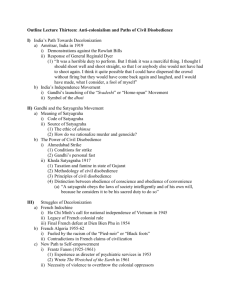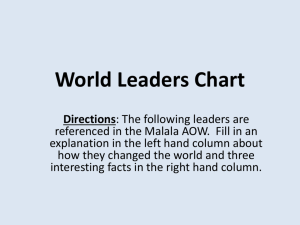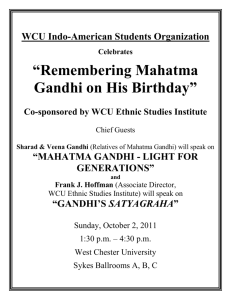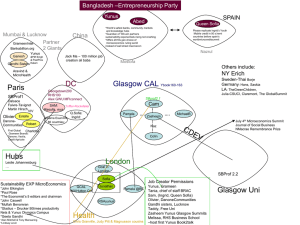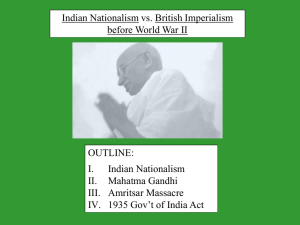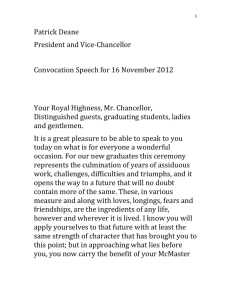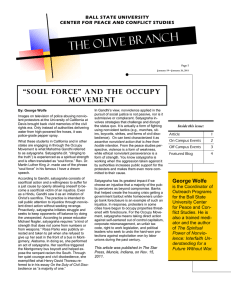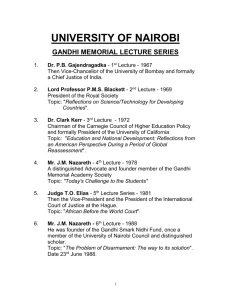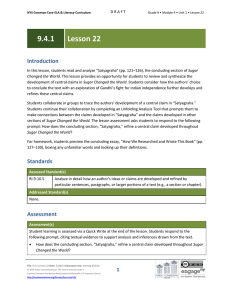Micro-finance homilies at Satyagraha Centenary - Sa-Dhan
advertisement
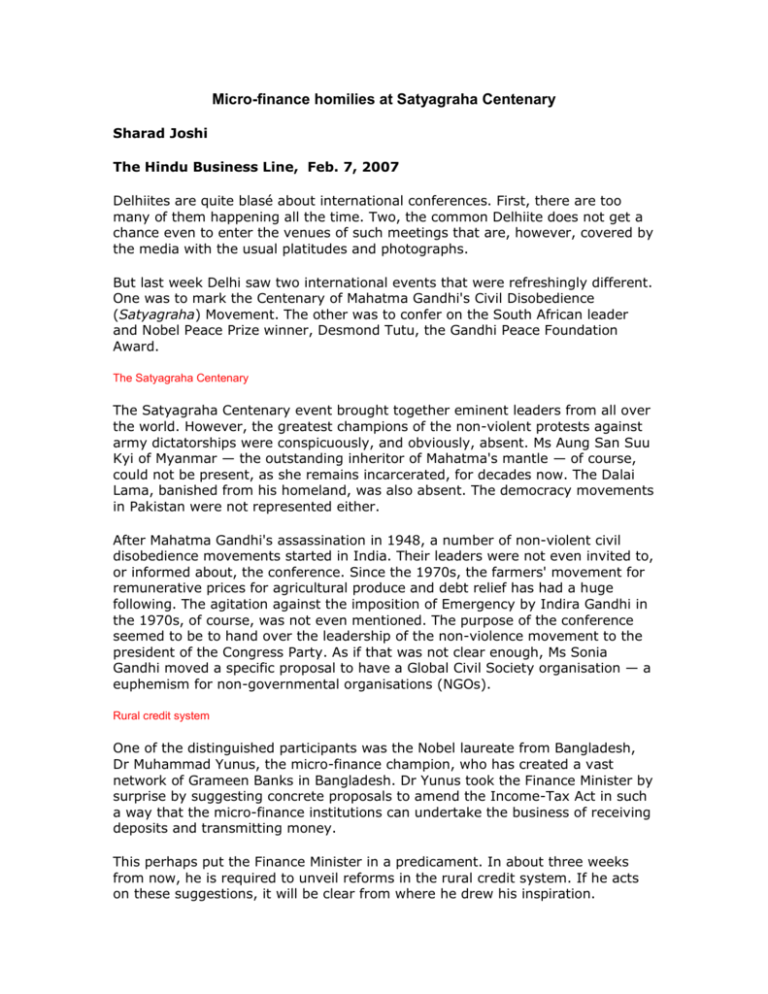
Micro-finance homilies at Satyagraha Centenary Sharad Joshi The Hindu Business Line, Feb. 7, 2007 Delhiites are quite blasé about international conferences. First, there are too many of them happening all the time. Two, the common Delhiite does not get a chance even to enter the venues of such meetings that are, however, covered by the media with the usual platitudes and photographs. But last week Delhi saw two international events that were refreshingly different. One was to mark the Centenary of Mahatma Gandhi's Civil Disobedience (Satyagraha) Movement. The other was to confer on the South African leader and Nobel Peace Prize winner, Desmond Tutu, the Gandhi Peace Foundation Award. The Satyagraha Centenary The Satyagraha Centenary event brought together eminent leaders from all over the world. However, the greatest champions of the non-violent protests against army dictatorships were conspicuously, and obviously, absent. Ms Aung San Suu Kyi of Myanmar — the outstanding inheritor of Mahatma's mantle — of course, could not be present, as she remains incarcerated, for decades now. The Dalai Lama, banished from his homeland, was also absent. The democracy movements in Pakistan were not represented either. After Mahatma Gandhi's assassination in 1948, a number of non-violent civil disobedience movements started in India. Their leaders were not even invited to, or informed about, the conference. Since the 1970s, the farmers' movement for remunerative prices for agricultural produce and debt relief has had a huge following. The agitation against the imposition of Emergency by Indira Gandhi in the 1970s, of course, was not even mentioned. The purpose of the conference seemed to be to hand over the leadership of the non-violence movement to the president of the Congress Party. As if that was not clear enough, Ms Sonia Gandhi moved a specific proposal to have a Global Civil Society organisation — a euphemism for non-governmental organisations (NGOs). Rural credit system One of the distinguished participants was the Nobel laureate from Bangladesh, Dr Muhammad Yunus, the micro-finance champion, who has created a vast network of Grameen Banks in Bangladesh. Dr Yunus took the Finance Minister by surprise by suggesting concrete proposals to amend the Income-Tax Act in such a way that the micro-finance institutions can undertake the business of receiving deposits and transmitting money. This perhaps put the Finance Minister in a predicament. In about three weeks from now, he is required to unveil reforms in the rural credit system. If he acts on these suggestions, it will be clear from where he drew his inspiration. Fortunately, the Finance Minister knows very well that the "Grameen Bank" of Bangladesh is not the same as the "Bachat Gat" (NGO representing a Federation of SHG leaders) of India. The latter are on the brink of collapse as they have been lending indiscreetly, thereby accumulating non-performing assets. Dr Yunus's strong criticism of subsidies to micro-finance institutions rattled quite a few politicians. By opposing all subsidies to micro-finance institutions, Dr Yunus obviously wanted to ride the hobbyhorse of NGOs and replicate Grameen Banks in India. Honouring Tutu The very next day, the President conferred the Gandhi Peace Foundation Award on Dr Desmond Tutu, in a function at the Rashtrapati Bhavan. In his acceptance speech, Dr Tutu expressed concern about the situation in both Tibet and Myanmar — something that should have been said at the Satyagraha Centenary event. The accomplished diplomat that he is, Dr Tutu complimented the Government of India for the help rendered to the Dalai Lama and to the cause of the release of Madame Aung San Suu Kyi. That was, nevertheless, a left-handed comment. For, the Foreign Secretary is said to have gone to Dharamshala on the eve of the visit of the Chinese President, to request the Dalai Lama not to say or do anything that would embarrass New Delhi during the visit of the Chinese leader. Also, a large number of Indian dignitaries have visited Myanmar but not called on Madame Aung San Suu Kyi or visited the famous bridge where she staged her Satyagraha. (The former could be a diplomatic issue but what of the latter?) (The author, a Member of the Rajya Sabha, is founder of the Shetkari Sanghatana. He can be reached at sharad.mah@nic.in)
